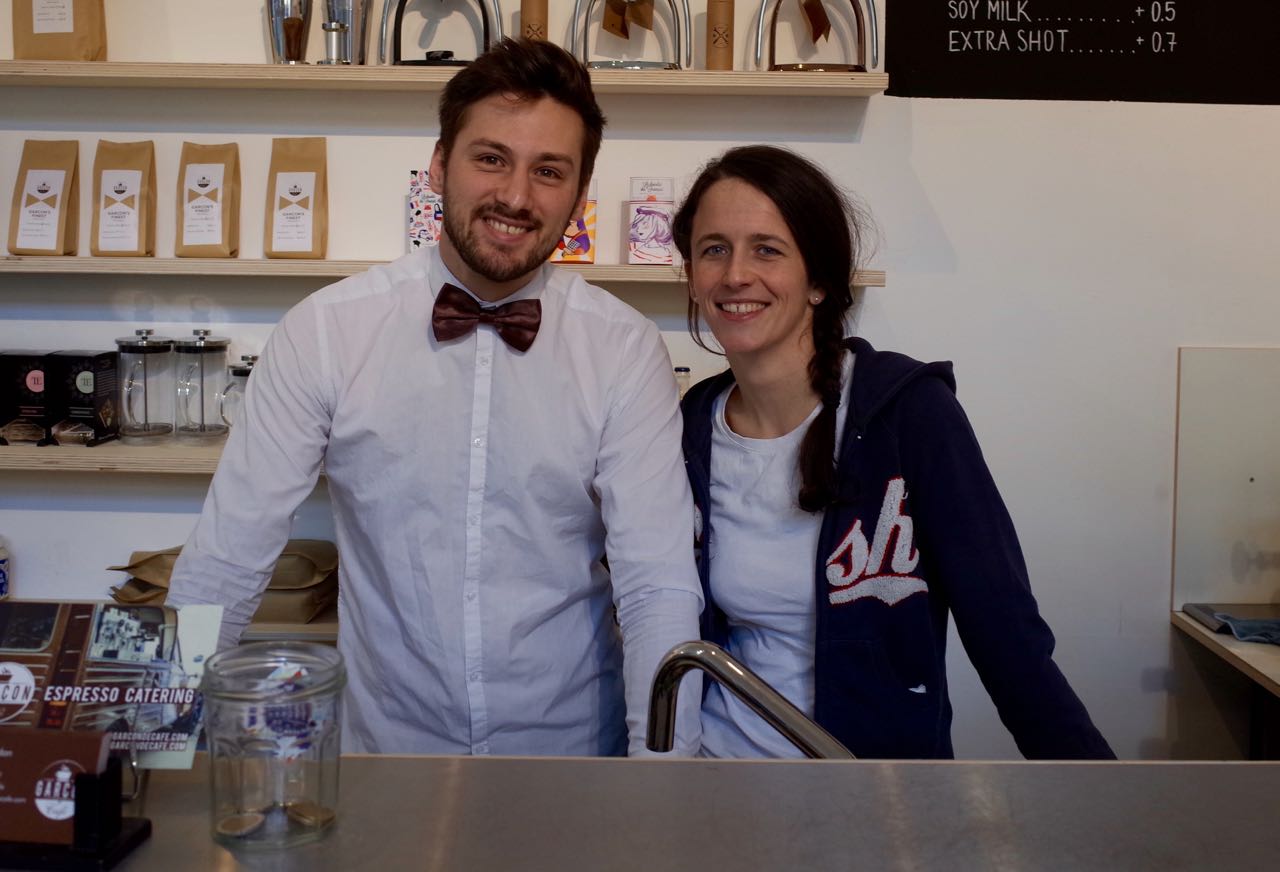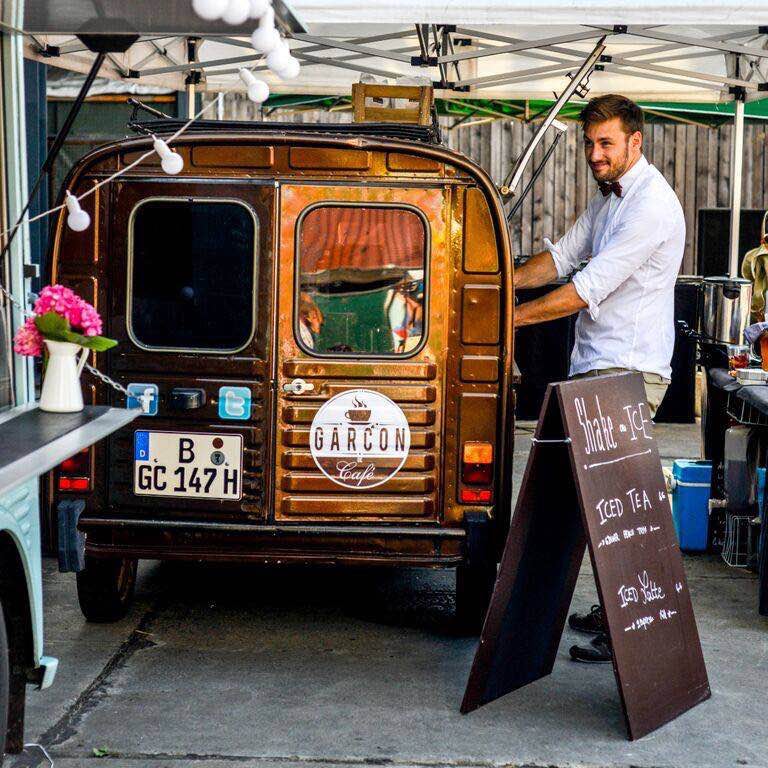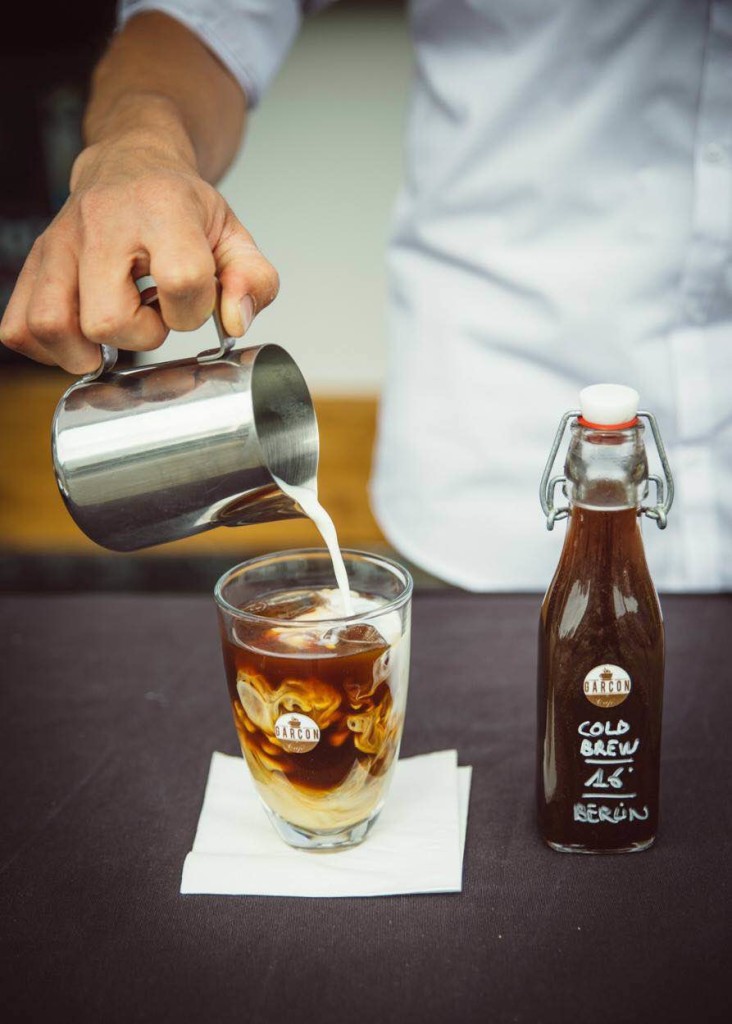French Food Trucks in Berlin

Why is it that so many French chefs are coming to Berlin? And why are they starting out with food trucks? Let’s ask Gabrielle and Henri.
I’m at the dessert market of the Markthalle 9 in Kreuzberg, tasting some ambrosial salted caramel ice cream from Jones. The English-sounding name doesn’t suggest that its owner moved to Berlin from Calais, France. But Gabrielle Jones’s truck hints at her Gallic roots: it’s a Citroen old-timer, painted baby blue with corrugating siding, with a bright side hatch from which she dispenses her delicacies (made without preservatives unlike some of the “I-was-once-powder” concoctions that dominate the 1-EUR Berlin ice cream “Kugel” market).

I would love to undermine the obvious cliché––that French people are a motor bringing gastronomic food culture to Berlin––because I’m not one to play the national game when it comes to cuisine. But with so many excellent ventures––Lamazère Restaurant in Charlottenburg, or Passion Vin wine in Kreuzberg––I start to wonder whether there’s something to it. But Gabrielle adds another ingredient to the salad when I ask her why so many French people are involved in the Berlin foodie scene: “French people don’t just know about good food. They are also professionalised when it comes to gastronomy”. Indeed, it isn’t enough to know how to eat and cook: you need to know how to make it a business.
After having started with her food truck that stopped around Berlin––from Wochenmarkt to the erstwhile Neue Heimat to the Bite Club ––Gabrielle this May will finally open her own store in Schoeneberg on Goltzstr. 3. “I am really happy to have a place where I can cook and sell my ice cream in the same place: it’s been complicated keeping ice cream the right temperature in the truck”.

Walking down Mulackstraße, in Mitte, I turn into the new Papier Tigre store. At one end is a coffee shop, where I meet Henri Baudon. He is also known to drive an old Citroen truck around Berlin to dispense his “Garçon de café” coffee, but now has a storefront for the product. Henri likes to dress up. It gives products a visual identity: he wears a bow tie; he has a tailored anti-Hipster look in a city where no one looks quite as clean and pressed as he does. He has the problem of convincing his staff to do the same. “Getting Berliners to wear bowties is hard”, he tells me. But getting them to drink his excellent Arabica coffee is not, which is creamy without shutting out the dark flavour of the bean––I’m not sure how he does it. His croissants are pretty delectable too. Henri part of a local coffee revolution, and his shop with its long communal bench is certainly one of the best places in the city to have an espresso.
Both Gabrielle and Henri came for Berlin because conditions at home in France made it difficult for them, as young people, to be entrepreneurs in gastronomy. Germany also makes it expensive for freelancers––compared to ‘Beamte’ and other employees––to pay social costs, such as health care. And it is more difficult to get good ingredients for ice cream, for example, or to convince people to pay a little more than usual to consume good food in Berlin, than in Paris.
But Berlin’s low cost of living still compensates. That combined with the fact that a food truck is an initially low-risk investment. Add too that Berlin’s breezy streets offer many more parking options than downtown Paris, and you are well on your way to understanding the route––from food truck to shopfront––these French foodies took.
Berlin also has a growing international population that wants to eat as well here as in their home countries. This has given Jones Ice Cream and Garçon de Café their audience, their following. “German tastes are changing as Berlin internationalises and more people come from somewhere else. I’ve seen an incredible change in food culture here”, Gabrielle tells me. Indeed, most of their customers seem to be fellow expat Berliners.
Both Gabrielle and Henri want to stay in Berlin. The tale of their trucks is, in the end, a good news story of small business entrepreneurship working out during a time of economic crisis. But I wonder whether rising prices in Berlin will eventually make things more difficult for them. I ask them what they think of gentrification, and Henri replies that gentrification is good for his business and that coffee prices here are too deflated. “I wouldn’t mind if prices increased”, he tells me, “3.50 EUR would be a fair price for coffee. Even at those prices, we are still not London or Paris”.

I think about how the story of coffee is linked to the story of gentrification. Lattes and cappuccinos are metonymic for neighbourhood change, when we see Spätis serving tarry hot water give way to hipster temples-to-the-bean. We are stuck between our distaste for rising prices, and the recognition that posher tastes bring better products. Don’t some of us want Garçon coffee down the street, but without the often accompanying extremes of social injustice? Those who complain about gentrification are frequently the same ones who are secretly relieved that they can finally stop drinking instant from a paper cup when they step out their front door.
And what risks does success carry for Henri and Gabrielle? Many purveyors, when their product establishes itself, scale down quality because they already have good reviews. Both Gabrielle and Henri, for their parts, tell me that they went into business because they care about good food.
When I leave Garçon de Café, I see Henri standing behind the polished shop window, with his butterfly bowtie, his pressed shirt. He waves at me. He’s obviously done well with his coffee shop––I am delighted he is so successful––but I wonder where his truck is right now. Does he miss it? Does he miss arriving somewhere new in Berlin, parking under the trees? Does he miss the steam rising on a cold day, outside when he foams the milk, as he watches strangers pass, hesitate, then approach his truck?
After all, Henri told me, “Going out with the truck every day is amazing, it means every day is different”.

